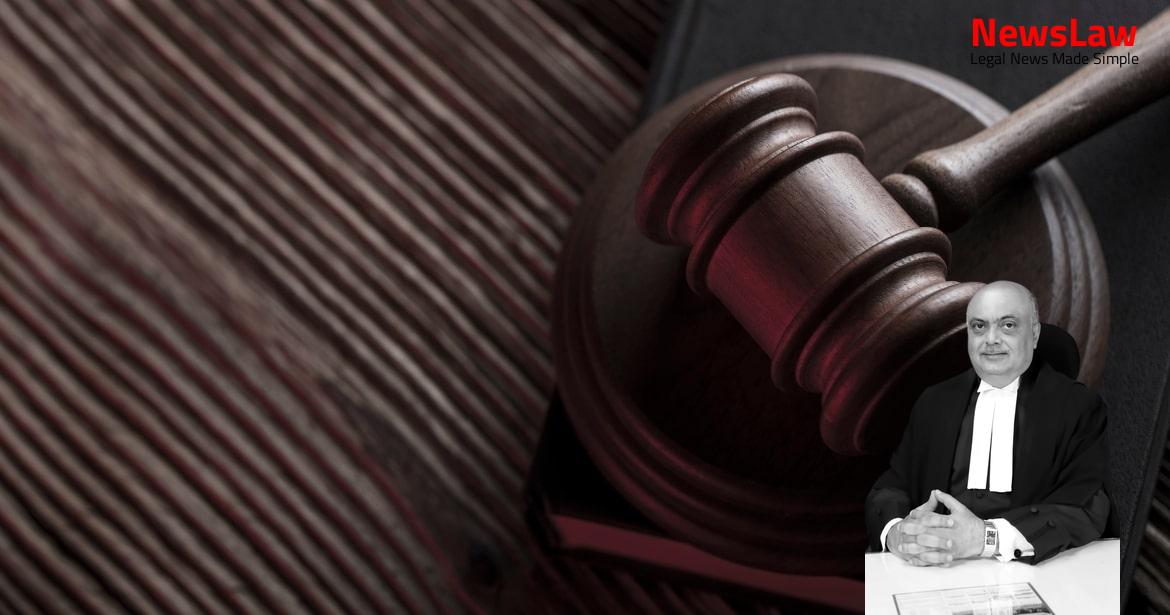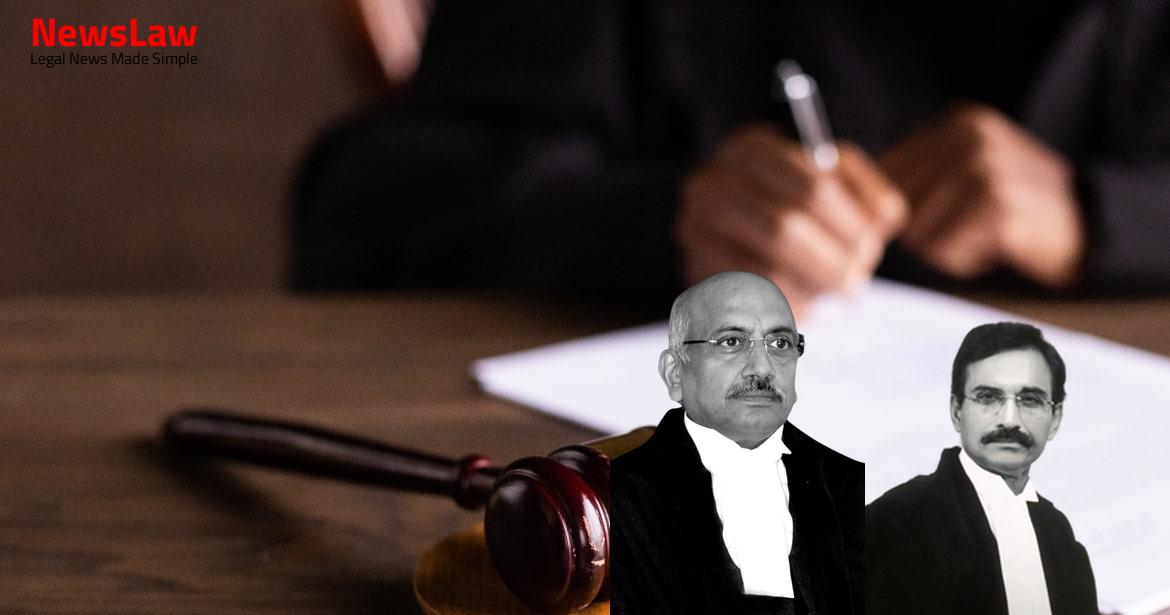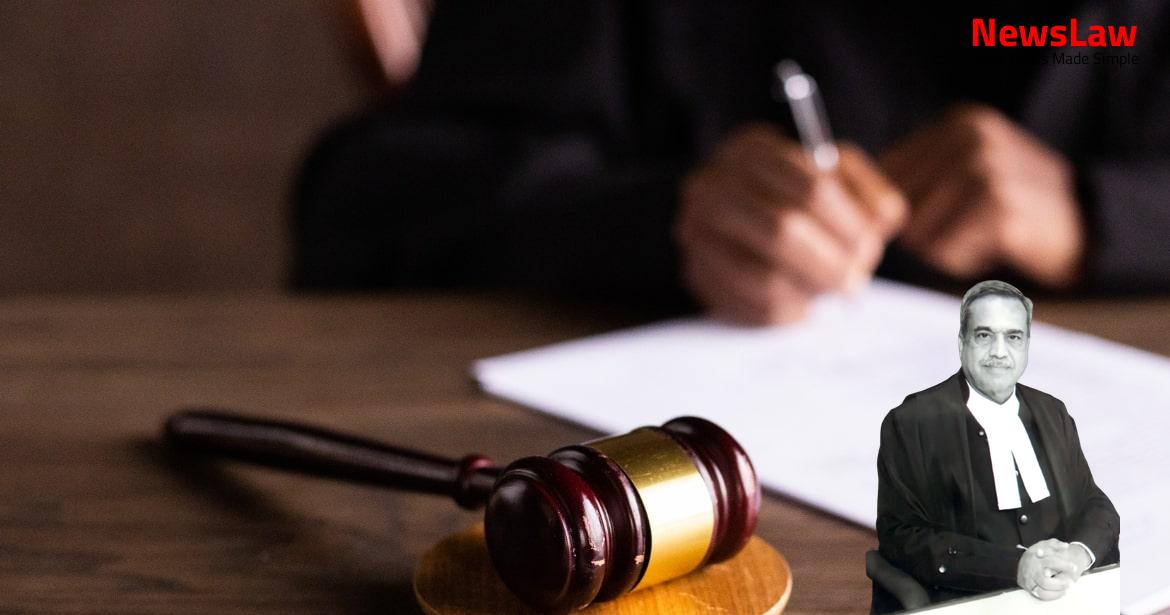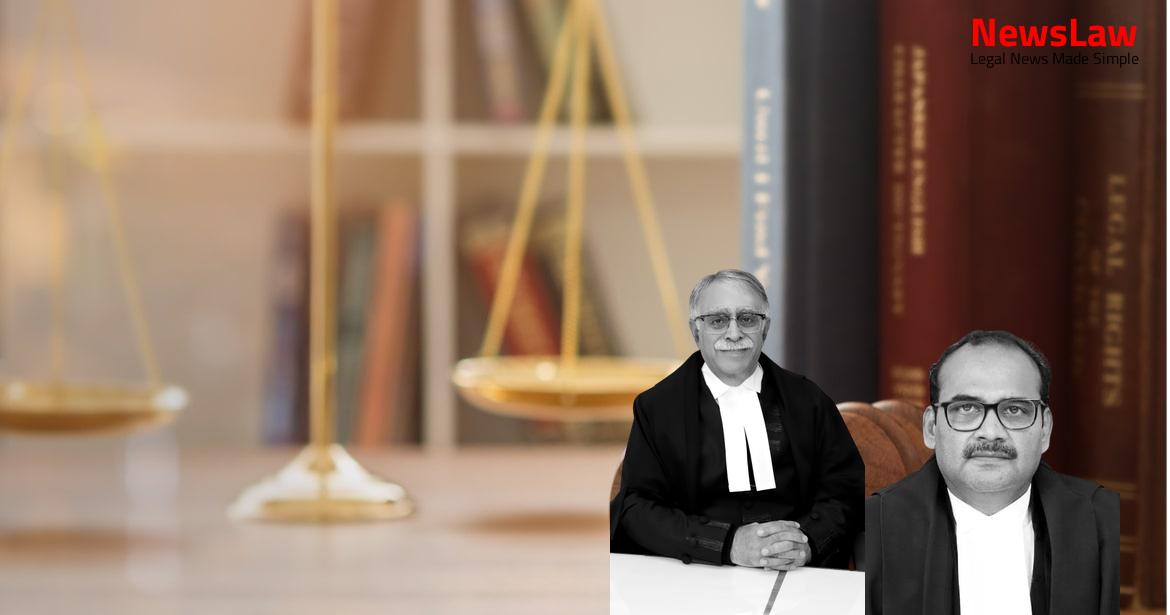The appeal arising out of SLP Criminal No.2454 of 2022 is filed assailing the order dated 10.01.2022 passed in WPCR No 686 of 2020.
In the connected appeal, the challenge is to the order dated 15.09.2021 whereby the Criminal Revision Petition filed by the appellant herein, before the High Court assailing the legality and correctness of the order dated 14.07.2021 passed by the Special Judge under NDPS Act at Raipur in Special Case No.98/2020 whereby the appellants application filed under 227 Section of the Code of Criminal Procedure, 1973 (for short, ‘CrPC’) was dismissed and charges were framed against the appellant under Section 29 read with Sections 22(b), 22(c), 25 and 27 of the NDPS Act, which was not interfered by the High Court. The appellant No.1 claims to be innocent, while the appellant No.2 who is his father being agitated by such alleged illegal action by the prosecuting agency under the respondent No.1 had filed the online complaints dated 27.10.2020 and 06.11.2020 raising his concern and sought for action in that regard. It is averred that appellant No.1 had accordingly travelled to Odisha and had booked room no.220 in Hotel Green Park, Talcher, District Angul, Odisha from 15.10.2020 to 20.10.2020. It is claimed that the appellant No.1 was thereafter kept in the lockup throughout the night without disclosing the reasons for such action and on 21.10.2020 about 19:15 hours, police Sub-inspector Shri Priyesh Mathew John lodged FIR against him, bearing No.232/2020 for an alleged offence under Section 22(b) of the NDPS Act.
At the threshold it is necessary to take note that though initially the petition filed before the High Court had included the relief to quash the charge sheet and the further proceedings, considering that charges have been framed by the trial court and also detailed orders have been passed declining discharge of the appellant No.1, at present, the reliefs sought is essentially limited with regard to the direction to the CBI to conduct an investigation into the issue.
It is contended by the appellants that such offence could not have been alleged against the appellant to have been committed in Raipur on 21.10.2020, when in fact the police personnel named Pramod Behra, Sultan, Santosh and Ali of Chhattisgarh Police had abducted and taken away the appellant No.1 from the hotel in Odisha on 20.10.2020 itself.
It is contended that the situation which unfolded in Hotel Green Park on 20.10.2020 at about 1 PM would indicate that the said four persons acting on behalf of the Chhattisgarh Police had taken him away from the hotel. It is contended that the claim for investigation by the CBI is without basis and the well laid down guidelines of this Court does not permit referring the investigation to CBI in every case where the accused makes an allegation against the law enforcing authorities. In this regard, it is contended that the allegation of the appellant No.1 being in possession of 9.240 grams of cocaine on his person and that he was attempting to sell the same near Ashram Tihara in front of Sulabh Complex in Raipur on 21.10.2020, is a false case. The learned senior counsel for the appellants in order to buttress his contention with regard to the contradictory stand being taken by the respondents has sought to rely on the affidavit filed before this Court. In the course of the said affidavit, reference has been made to the process of investigation during which they had visited the Green Park Hotel and recorded statements relating to the four persons having come to the hotel and having introduced themselves as Chhattisgarh Police and asked them about the room number of the appellant No.1. 1 to 5 have sought to indicate that even as per the said affidavit, appellant No.1 himself had indicated that everything was alright and it is contended that even so far as the Police Officers mentioned by the appellants, they belong to a different department. Having noted this aspect of the matter it is appropriate to refer to the decision in the case of State of West Bengal & Ors. This extraordinary power must be exercised sparingly, cautiously and in exceptional situations where it becomes necessary to provide credibility and instil confidence in investigations or where the incident may have national and international ramifications or where such an order may be necessary for doing complete justice and enforcing the fundamental rights.
The decision whether transfer should or should not be ordered rests on the Court’s satisfaction whether the facts and circumstances of a given case demand such an order. After all transfer of investigation to an outside agency does not imply that the transferee agency will necessarily, much less falsely implicate anyone in the commission of the crime.
State of Punjab this Court transferred the investigation to CBI even when the investigation was being monitored by senior officers of the State Police. investigation was transferred even when the State Police was doing the needful under the supervision of an officer of the rank of an Inspector General of Police and the State Government had appointed a one-member Commission of Inquiry headed by a sitting Judge of the High Court to enquire into the matter.
Union of India, this Court directed transfer of the Chit Fund Scam in the States of West Bengal and Orissa from the State Police to CBI keeping in view the involvement of several influential persons holding high positions of power and influence or political clout. Transfer can be ordered once the Court is satisfied on the available material that such a course will promote the cause of justice, in a given case.” The above-noted decisions are in fact cited by the learned Senior Counsel for the appellants to contend that this Court should exercise its extraordinary power to refer to CBI in the instant facts.
The displeasure of an accused person about the manner in which the investigation proceeds or an unsubstantiated allegation (as in the present case) of a conflict of interest against the police conducting the investigation must not derail the legitimate course of law and warrant the invocation of the extraordinary power of this Court to transfer an investigation to CBI. While no inflexible guidelines are laid down, the notion that such a transfer is an “extraordinary power” to be used “sparingly” and “in exceptional circumstances” comports with the idea that routine transfers would belie not just public confidence in the normal course of law but also render meaningless the extraordinary situations that warrant the exercise of the power to transfer the investigation. In that background, even if the rival contentions are taken note, we do not find that there is any issue of public importance which requires to be unearthed by an investigation to be conducted by the CBI. Insofar as the allegation that the said persons namely Pramod Behra, Sultan, Santosh and Ali had gone to Odisha and had illegally abducted him, from the very details furnished by the appellants themselves, it is noted that the High Court had through the order dated 17.03.2022 in a collateral proceeding directed that the five officers stated in the said order be called as witnesses for examination and cross-examination.
That apart, on the other aspects also since the trial is under progress, the appellant No.1 would be entitled to put forth his case when the statement under Section 313 of CrPC is recorded and also he would be entitled to tender evidence if necessary. In addition, in the said process of the judicial proceedings if the appellant No.1 who was not involved, had been framed up and a case was foisted, the appellants would still have the legal remedy to take action for malicious prosecution, loss of reputation, action against involved persons, compensation and for such other relief in that regard. The appeals are accordingly dismissed with no order as to costs.
Case Title: ROYDEN HAROLD BUTHELLO Vs. THE STATE OF CHHATTISGARH (2023 INSC 180)
Case Number: Crl.A. No.-000634-000634 / 2023



